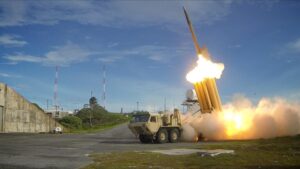U.S. Interceptors Are Depleted, Making Iran Decision Difficult
As the Trump administration weighs strikes on Iran following the regime’s brutal killing of protestors, it must reckon with a hard lesson from last June: in just 12 days of Israel–Iran fighting, U.S. and Israeli munitions fell to dangerously low…









